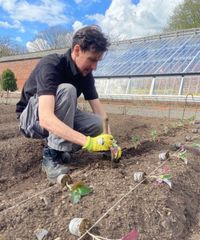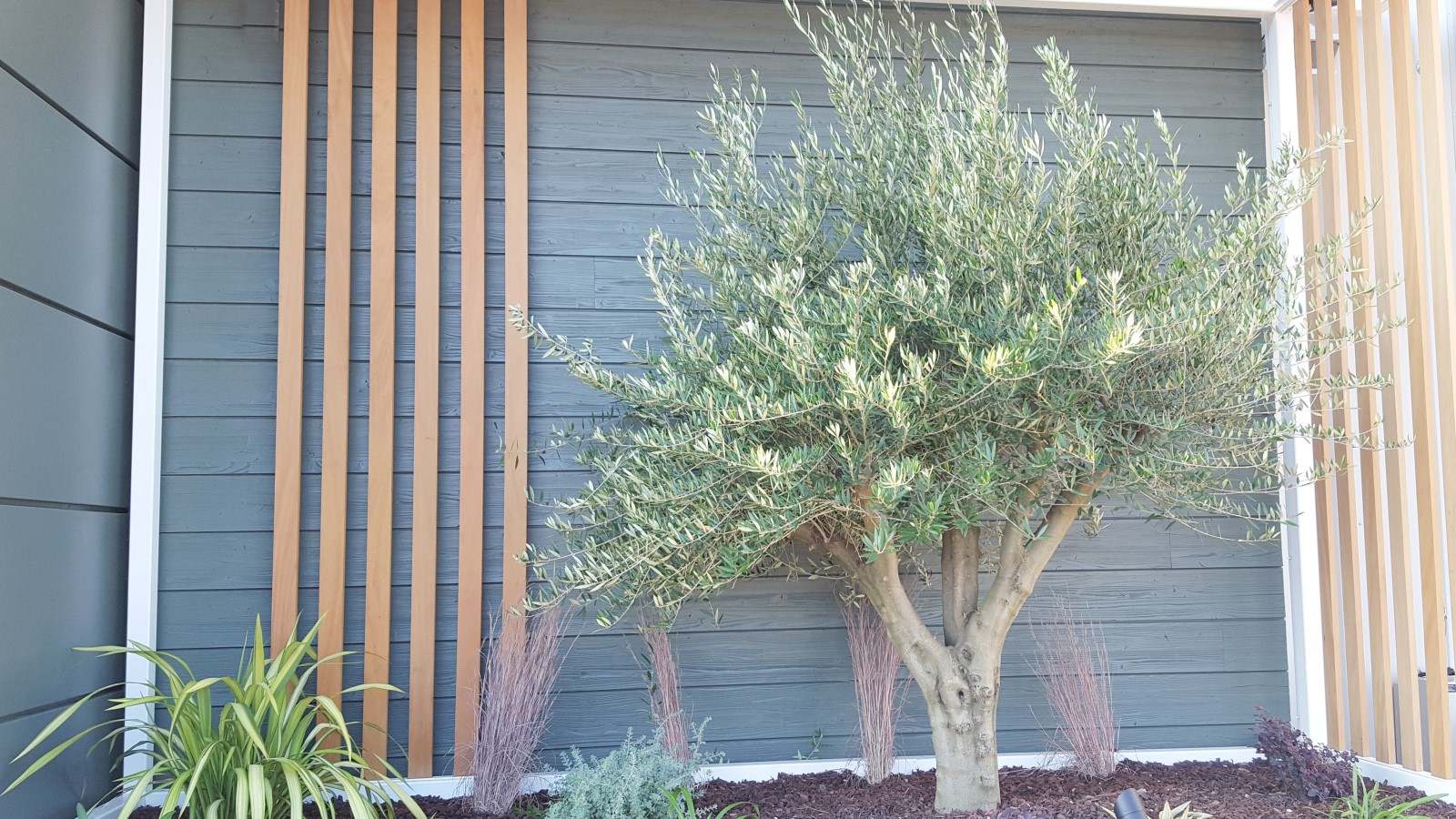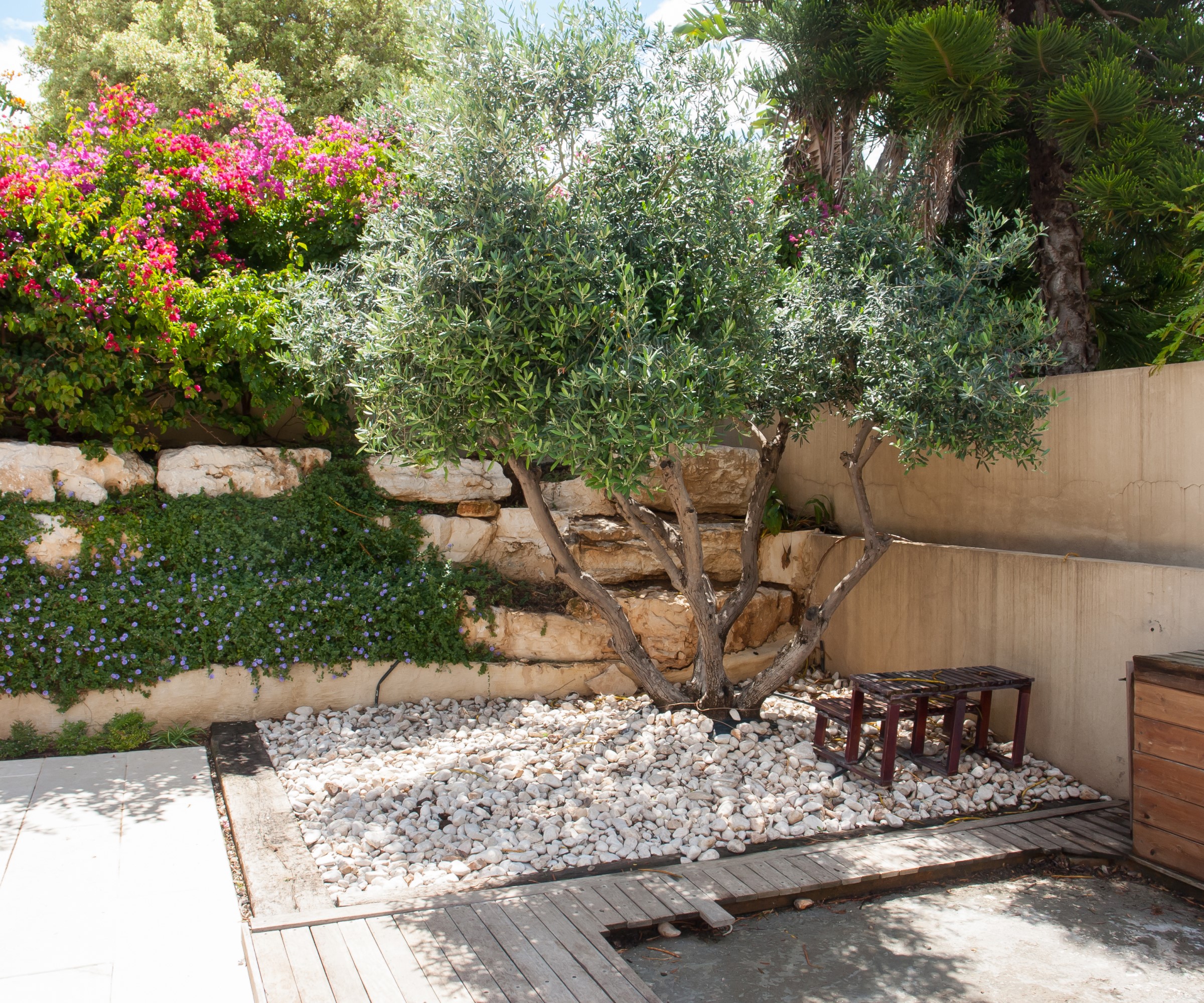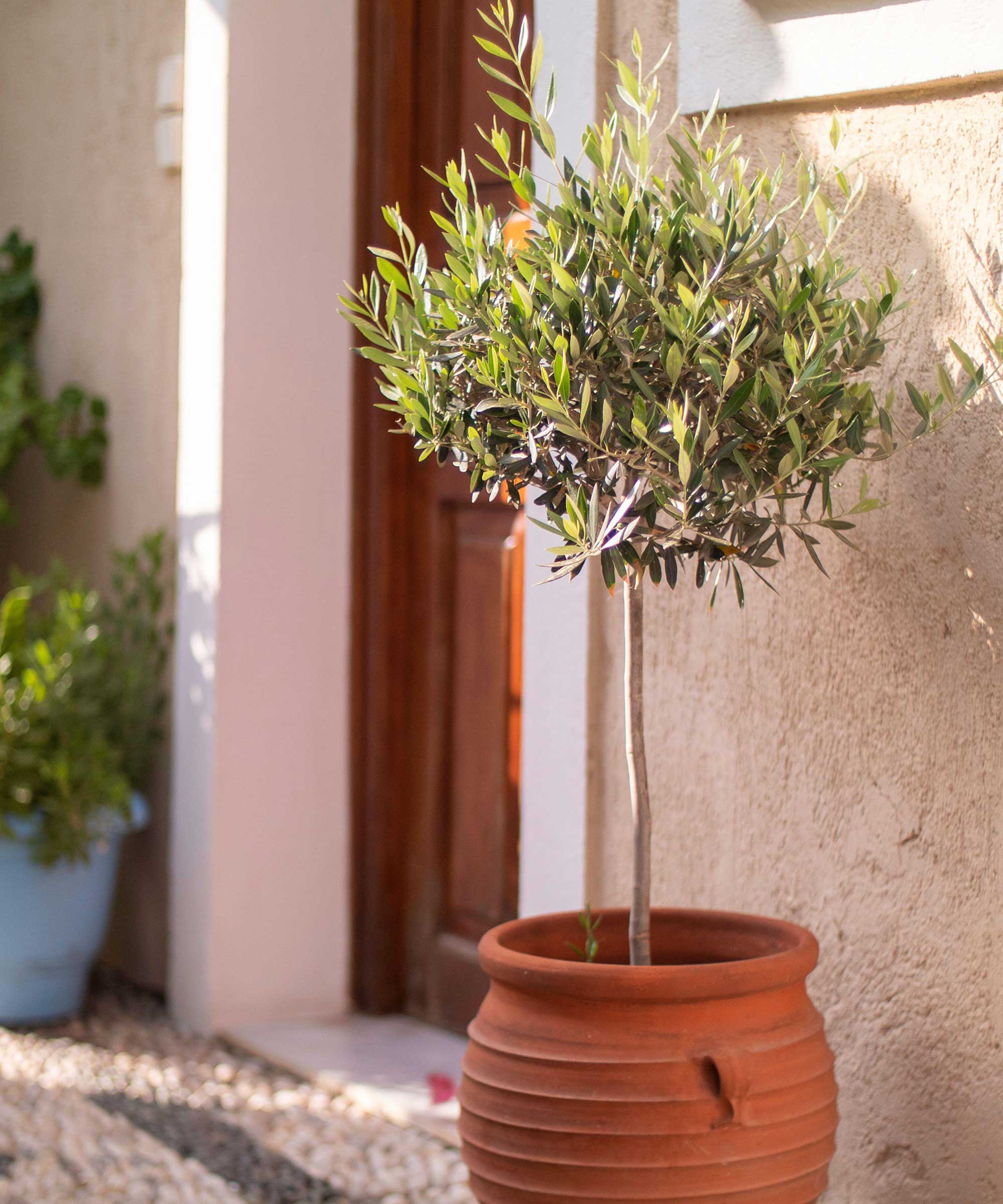Are olive trees drought-tolerant? Experts reveal the resilience of olives – and how to have the best watering regime
Established olive trees are very resilient to dry conditions, but will benefit from deep and infrequent watering during periods of drought


Design expertise in your inbox – from inspiring decorating ideas and beautiful celebrity homes to practical gardening advice and shopping round-ups.
You are now subscribed
Your newsletter sign-up was successful
Want to add more newsletters?

Twice a week
Homes&Gardens
The ultimate interior design resource from the world's leading experts - discover inspiring decorating ideas, color scheming know-how, garden inspiration and shopping expertise.

Once a week
In The Loop from Next In Design
Members of the Next in Design Circle will receive In the Loop, our weekly email filled with trade news, names to know and spotlight moments. Together we’re building a brighter design future.

Twice a week
Cucina
Whether you’re passionate about hosting exquisite dinners, experimenting with culinary trends, or perfecting your kitchen's design with timeless elegance and innovative functionality, this newsletter is here to inspire
Olive trees are ideally suited to hot and dry climates and can be very versatile plants for any backyard. They can grow in beds or borders, and are one of the best trees for small gardens, while they can even be grown as an indoor fruit tree.
Compact in size, slow-growing, evergreen, and very statuesque, olive trees can be simple to maintain. They do not need lots of watering once established and even just simple olive tree pruning can help to control the shape and even help your chances of getting a harvest of olives.
There are some olive trees that are more tolerant of dry conditions than others, but after they have established their position they can all be tolerant of drought. Though they will benefit from infrequent deep watering during these periods of dry weather.

Olive trees are native to hot and dry areas of Africa, Asia, and Southern Europe
How drought resistant are olive trees?
Olive trees are great when creating a Mediterranean garden along with other drought tolerant planting ideas. They are one of the best Mediterranean plants to create a southern European vibe as part of any backyard ideas.
Olive trees can thrive in many different conditions but do love hot and dry weather and they are extremely drought-tolerant trees. Their native conditions are warm and dry in the summer and mild in the fall and spring.
Different subspecies, cultivars, and hybrids will have varying levels of drought resistance, but overall all types of olives are low-maintenance and will not require lots of watering. Indeed, too much water can cause them issues, hampering them from growing properly and even potentially causing root rot.
Olive trees, along with any drought-tolerant trees or plants, will only be fully able to handle dry conditions once they are established. Younger trees with less developed root systems will need more frequent watering.
Design expertise in your inbox – from inspiring decorating ideas and beautiful celebrity homes to practical gardening advice and shopping round-ups.
Meredith Gaines, plant expert at Fast Growing Trees, says a well-established olive tree is one that has been planted for three or more years. She adds: ‘Younger trees that have been planted for less than three years in their new environment are not considered to be established yet.
‘During these first three years, it is very important to stick to a watering schedule.’
Olive trees are among one the best trees to grow in pots and any trees growing in containers will require much more watering than ones in the ground. When watering plants in containers always check the moisture levels a few inches under the soil surface to avoid over-watering.

Meredith Gaines is a senior plant expert at Fast Growing Trees. She graduated from Clemson University with a degree in Biology and Horticulture and has worked at the South Carolina Botanical Gardens and Historic Filoli Estate in the Bay Area.

Olive trees are best able to cope with dry periods once established
What is the most drought tolerant olive tree?
All olive trees can be regarded as drought-tolerant and will become more drought-tolerant as they age. Some of the best olive tree varieties with the highest drought resistance include Arbequina, Frantoio, Maurino, and Koroneiki. You can buy Arbequina olive trees from Fast Growing Trees
When it comes to levels of drought tolerance, Nastya Vasylchyshyna, resident botany expert for the Plantum app, says: ‘While they can’t thrive without water, they show great resilience and minimal yield loss in dry conditions.’

Nastya Vasylchyshyna is a professional botany expert for the Plantum app that helps identify plants and plant diseases and provides care recommendations. She has been having 4 years of consulting on botany-related topics for Plantum (formerly NatureID). Her specialization is plant morphology, phytopathology, and plant physiology.

Olive trees growing in pots will need more regular watering than when in the ground
Do olive trees need a lot of water?
It can be tough to judge when to water and how to water plants. While you may hear that olive trees are drought tolerant and feel that means it does not require regular watering, they still do need regular monitoring and water to survive during hot and dry spells.
If olive trees do not get regular moisture in the early spring, between March and May, then it can impact the flowering, and fruiting, of the tree. Watering will also be required in the summer to ensure that any fruit swells to the right size, as a lack of moisture could cause the olives to shrivel up.
When it comes to how to water olives, Meredith Gaines reminds olive growers that trees ‘like deep and infrequent waterings’, adding: ‘When watering, let the water fully saturate and soak into the soil, and water less frequently than you would other plants. It's about increasing the volume of water, not how often you give your plant water.
‘To mimic its native environment, you should water more in the wintertime, if Mother Nature doesn't do that for you. Never let water pool or overly saturate the roots, as this can negatively affect your harvest.’
If you are wondering how much water, Nastya Vasylchyshyna advises: ‘A small young tree needs around 4–5 gal (15–20 l) of water per session, while mature trees require more substantial watering. For them, you should use about 5 gal (20 l) of water per about 11 square feet (1 square meter) of canopy area.’
If you have only a small backyard and want to add some Mediterranean flair to the space, then olive trees represent one of the best fruit trees for small gardens. Even if you have no soil to plant trees in beds or borders and just have a patio or deck, olive trees will be one of the best plants for pots all year round that you can choose as part of any backyard ideas.

Drew has worked as a writer since 2008 and was also a professional gardener for many years. As a trained horticulturist, he worked in prestigious historic gardens, including Hanbury Hall and the world-famous Hidcote Manor Garden. He also spent time as a specialist kitchen gardener at Soho Farmhouse and Netherby Hall, where he grew vegetables, fruit, herbs, and cut flowers for restaurants. Drew has written for numerous print and online publications and is an allotment holder and garden blogger. He is shortlisted for the Digital Gardening Writer of the Year at the 2025 Garden Media Guild Awards.